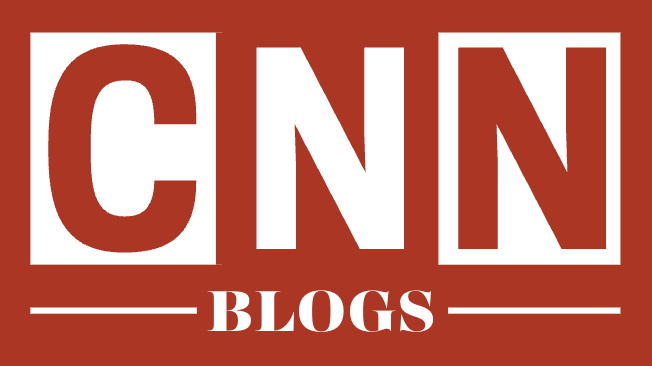Canada’s immigration landscape is set to undergo notable changes in 2025 and 2026, particularly within the Provincial Nominee Programs (PNPs). These programs allow provinces and territories to nominate skilled workers, students, and entrepreneurs for permanent residence based on local labor market needs. According to Immigration, Refugees and Citizenship Canada (IRCC), the goal is to ensure that regional economies continue to grow while addressing specific workforce shortages.
For applicants from around the world, the PNP route has always been a popular alternative to federal immigration streams. However, with higher demand, stricter documentation requirements, and enhanced verification protocols coming into effect, prospective nominees will need to prepare their applications more carefully than ever.
What Are Provincial Nominee Programs?
PNPs are designed to meet the unique economic and demographic needs of Canada’s provinces and territories. Each province administers its own program with specific eligibility criteria, often targeting:
- Skilled workers in high-demand occupations
- International students who have graduated from local institutions
- Entrepreneurs and business investors seeking to establish or buy a business in the province
For 2025–2026, the IRCC has confirmed that provinces will continue to receive quotas tied to labor market priorities, but will also implement more rigorous documentation checks. This ensures that nominees meet local requirements and can successfully integrate into the provincial economy.
Major Changes Expected in 2025–20261. Tighter Documentation Verification
IRCC and provincial authorities are placing greater emphasis on document authenticity and completeness. Applications are now scrutinized for:
- Accurate personal identification documents
- Correctly formatted academic and professional credentials
- Consistency between work experience and job offers
One of the significant shifts is the stricter evaluation of documents issued in languages other than English or French. As a result, applicants must provide certified translations for foreign diplomas, transcripts, employment records, and civil documents.
2. Increased Focus on Employment Records
Provinces rely heavily on applicants’ employment history to ensure nominees possess the skills their economies require. IRCC guidance highlights that:
- Employment letters should clearly state job titles, responsibilities, and dates of employment
- Salary information and work permits must align with federal and provincial standards
- Foreign work experience may require verification from former employers
Incomplete or poorly translated employment documents are a common cause of delays. For many applicants, using professional translation services—such as firms like ANZ Translation Canada—helps ensure that employment letters, contracts, and pay stubs meet provincial requirements.
3. Academic Credentials and Language Proficiency
For PNP streams targeting international students or skilled workers, academic credentials are critical. Provinces such as Ontario, British Columbia, and Manitoba have started requesting:
- Detailed transcripts and diplomas
- Translations that maintain original formatting
- Credential assessments for degrees obtained abroad
Language proficiency remains a requirement for most streams. While English and French language tests are standard, IRCC now emphasizes that all supporting educational documents must be clear and accurately translated to prevent inconsistencies.
4. Proof of Funds and Financial Documentation
Provinces increasingly request evidence that applicants can support themselves and their dependents during the settlement process. For 2025–2026, IRCC guidance recommends:
- Bank statements spanning six months
- Investment and property documents, if applicable
- Sponsor letters for family or dependent applications
When these documents are issued in a foreign language, certified translations are mandatory. Misinterpretation of financial information due to poor translations can delay approvals, making professional translation an important consideration.
5. Entrepreneur and Business Streams
PNPs also cater to entrepreneurs who wish to start or invest in local businesses. For these applicants, provinces require:
- Business plans
- Financial projections
- Proof of previous business experience
- Legal documents regarding ownership and company registration
Accurate translation of these documents ensures that provincial authorities can properly assess the viability of proposed businesses. Many applicants rely on certified translation services to meet these standards.
Why Translations Are Becoming More Critical
One of the most notable trends in 2025–2026 is the growing emphasis on certified translations across all PNP streams. IRCC explicitly requires:
- Translators to provide certifications verifying accuracy
- Complete reproduction of all seals, stamps, and handwritten notes
- Professional handling of both digital and hardcopy documents
Applicants who attempt self-translations or use unqualified translators risk delays or outright refusals. While IRCC does not endorse any specific company, professionals such as ANZ Translation Canada have experience preparing documents in compliance with Canadian immigration standards, making them a valuable resource for applicants.
Tips for a Smooth Application Process
To navigate the updated PNP requirements successfully, prospective nominees should:
- Prepare documents early – Start collecting and translating documents months before submission.
- Use certified translations – Ensure all documents not in English or French are professionally translated.
- Verify employment and academic records – Check for consistency and completeness.
- Organize financial documentation – Provide comprehensive proof of funds for yourself and dependents.
- Stay informed on provincial changes – Each province may update its PNP streams, so check official websites regularly.
Looking Ahead to 2026
IRCC and provincial authorities are expected to continue refining the PNP process in 2026, with anticipated enhancements including:
- Expanded digital document verification
- Streamlined online application portals
- Automated screening for incomplete or inconsistent documentation
- Increased collaboration with professional translators for quality assurance
For applicants, early preparation, careful document management, and use of certified translations remain essential strategies for success.
Conclusion
Canada’s Provincial Nominee Programs remain one of the most effective pathways to permanent residence, offering opportunities tailored to local labor markets and economic priorities. However, with tighter verification measures and increased scrutiny of documents in 2025–2026, applicants must approach the process meticulously.
Certified translations—especially for academic, employment, and financial records—play a central role in meeting IRCC and provincial standards. While applicants can choose any accredited Canadian translator, experienced services like ANZ Translation Canada offer guidance on producing accurate, compliant documents, helping ensure smoother and faster processing.
For those looking to live and work in Canada through a provincial program, preparation and accuracy will continue to be the keys to success in 2025 and beyond.



